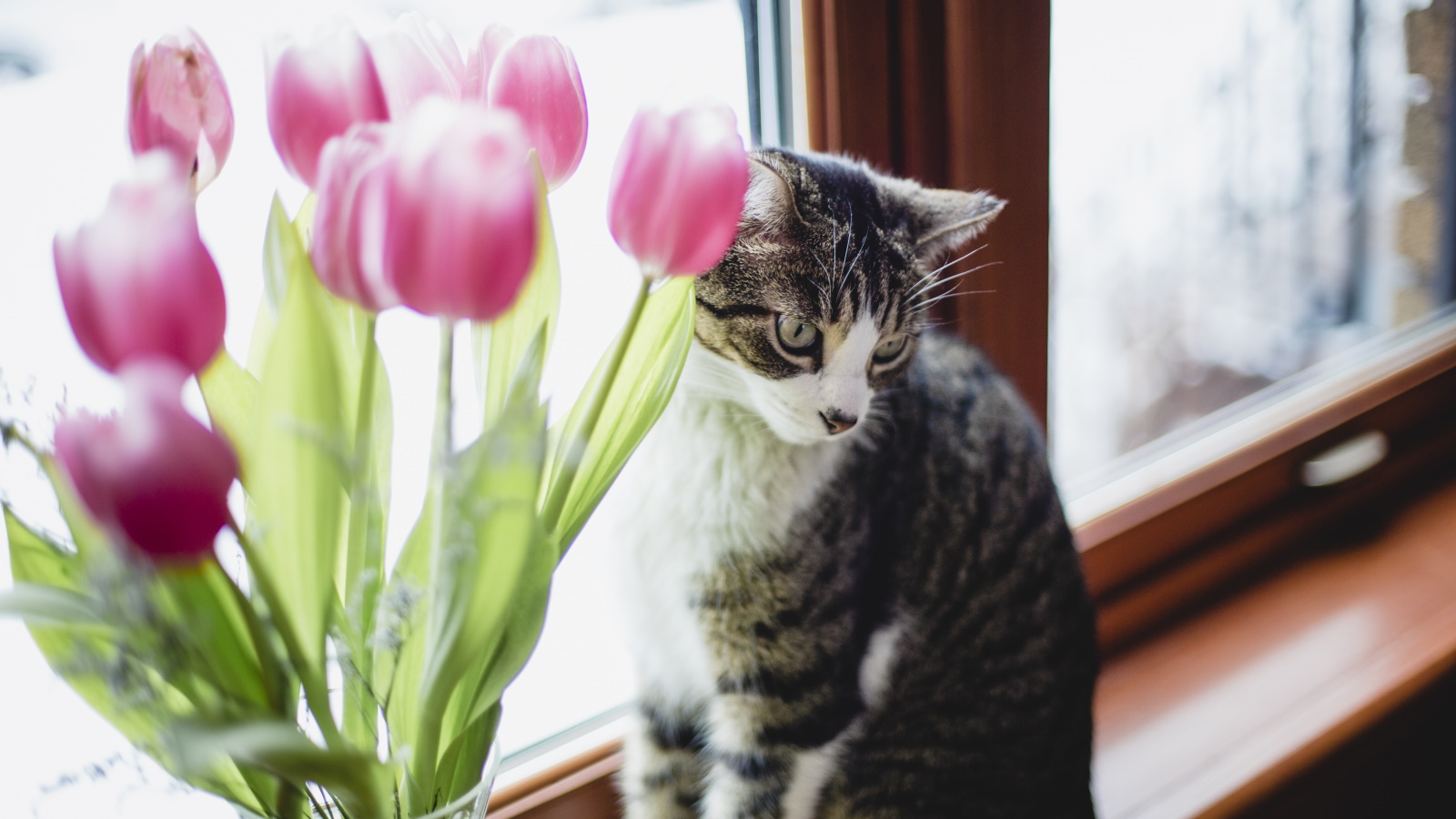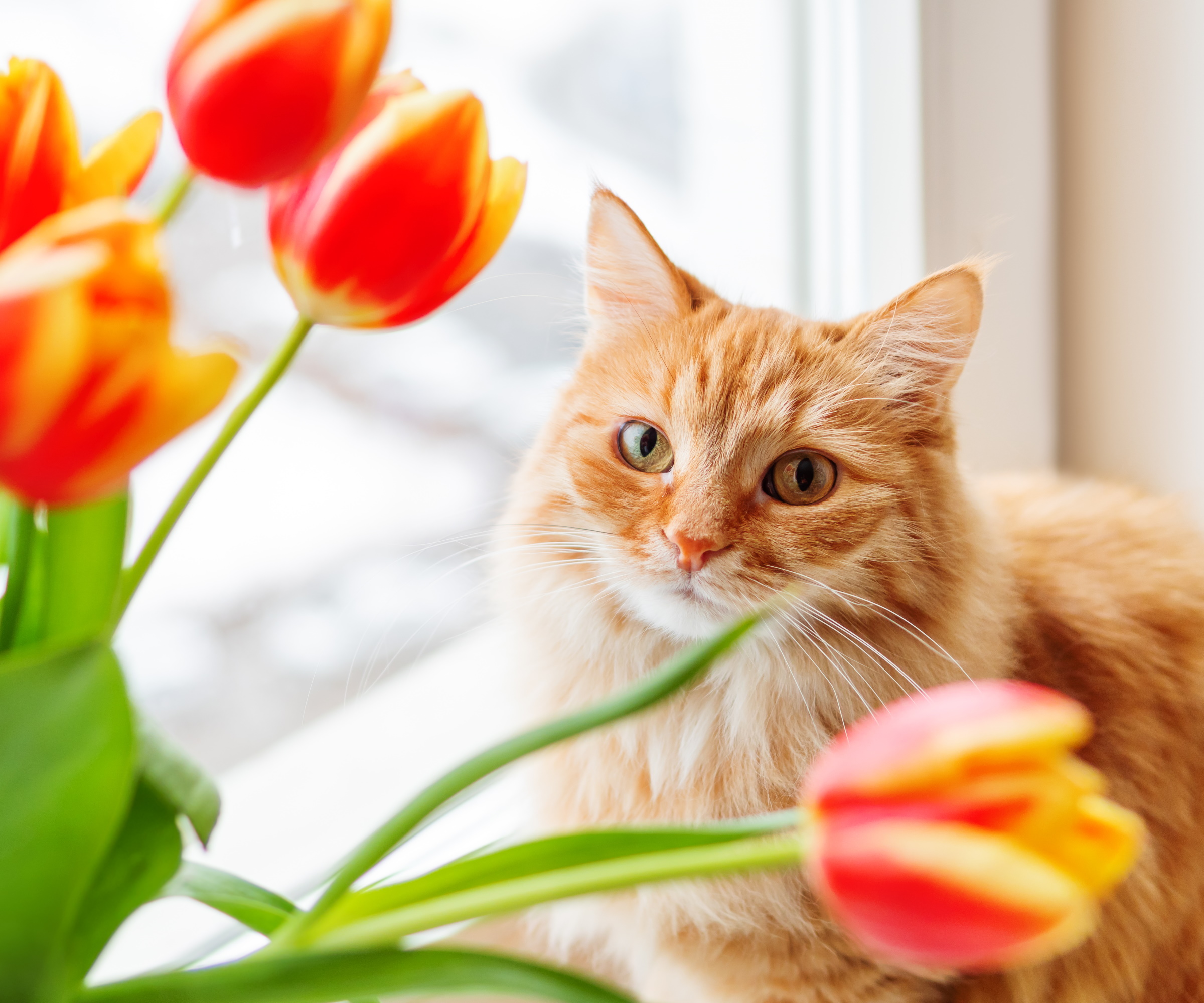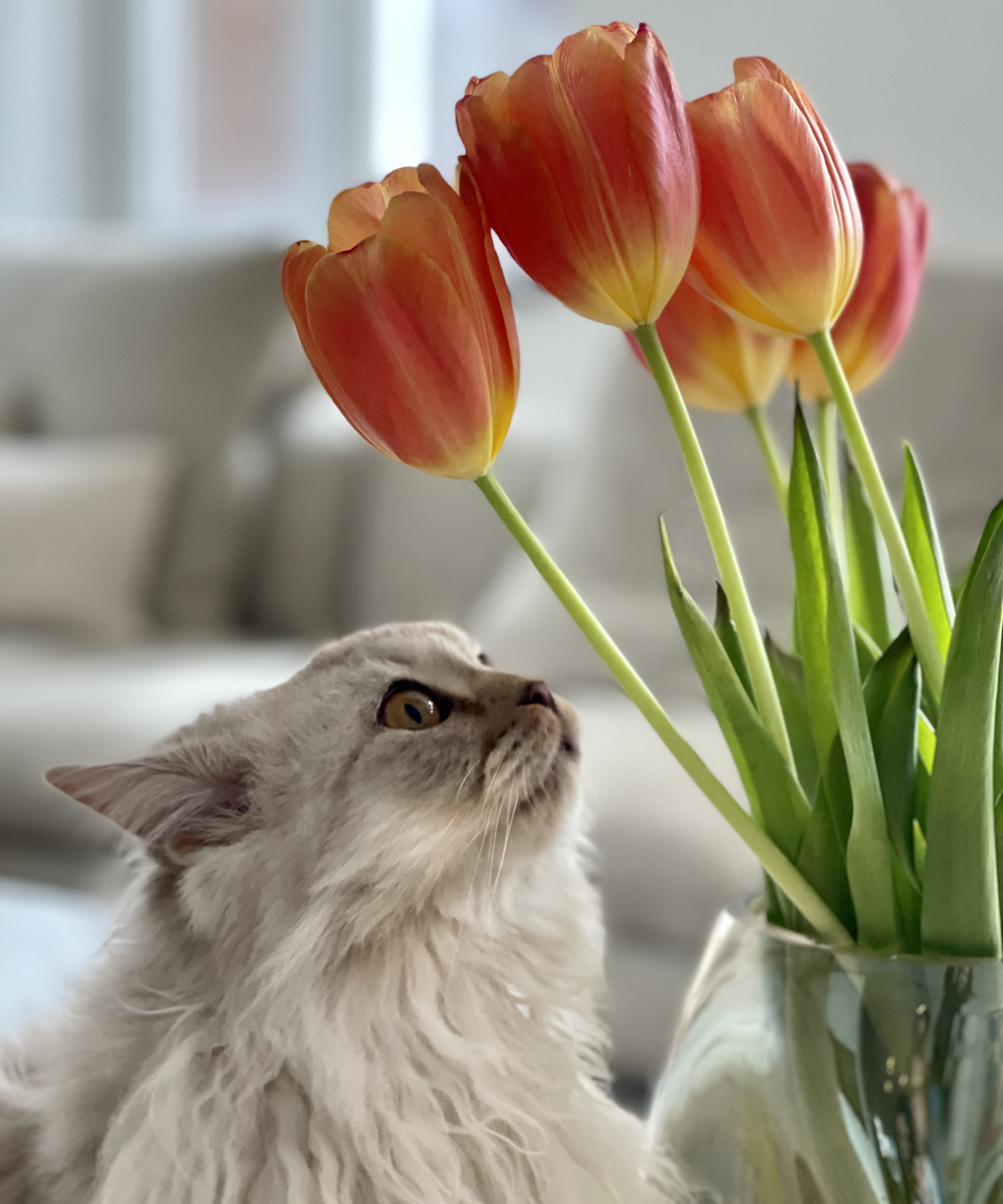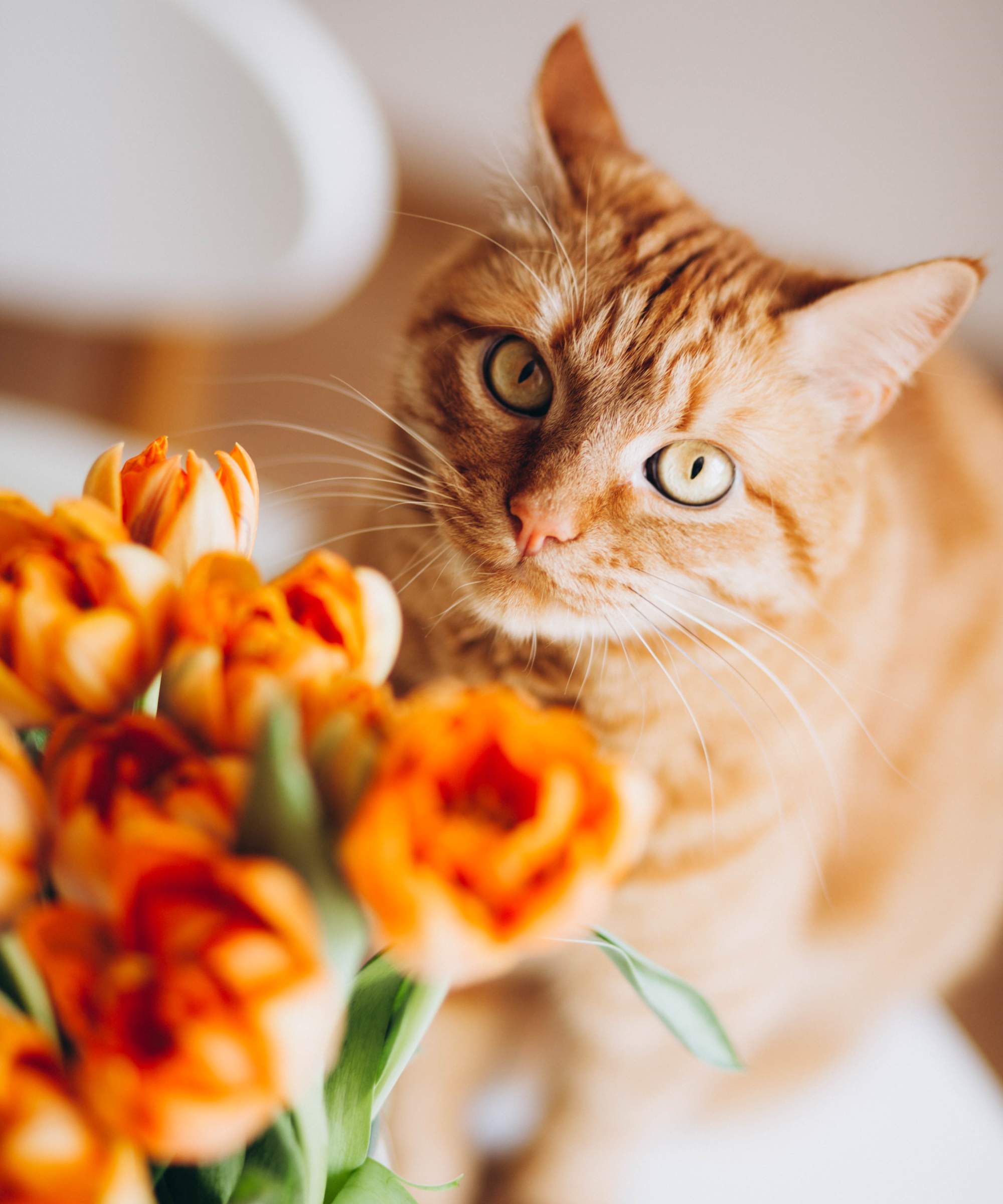
Choosing which flowers to grow in your yard for a colorful spring display can be tricky when there are so many wonderful choices available. But you should always take into consideration your lifestyle, which means being away of plants that could cause harm to your pets.
While there are many cat safe indoor plants, unfortunately popular springtime tulips are among the plants toxic to cats. Whether you're growing tulips indoors or planning a cut flower garden that includes these blooms, it's wise to protect your cats from them.
We've spoken to experts to find out more about the toxicity of tulips to cats and what to do if your cat has eaten them.

Are tulips toxic to cats?
In short, yes. Tulips are toxic to cats if ingested and can cause your felines to become unwell. But don't worry, we've asked experts how toxic they are and what you should do if your cat takes a bite.
What happens if your cat eats a tulip?

When plants are considered unsafe for pets, it's a sign that they have toxins that will cause illness to your pet if ingested. The harmful toxin found in tulips is known as tuliposides.
'Tulips contain toxic organic compounds which are concentrated in the bulbs. They contain tuliposides A and B, which when ingested by cats can cause hypersalivation, vomiting and diarrhea,' says Dr. Amy Attas, veterinarian and founder of City Pets Vets.
'If a large quantities are ingested, these compounds can drop blood pressure, lead to central nervous system problems and cause cardiac changes,' she adds.
While the toxins are concentrated in the bulbs, ingesting stems, leaves and flowers can also cause cats to experience the above symptoms.
'The bulbs also contain calcium oxalates which are also associated with gastro-intestinal discomfort, lethargy and when consumed in large quantities central nervous system signs,' says Dr. Attas.
What should you do if your cat eats a tulip?

If you notice your cat showing symptoms of eating a tulip or you see that they have ingested these flowers, it's important to seek medical attention.
Dr. Amy Attas notes not to panic if your cat has only eaten the flowers and leaves of the tulip. 'The flowers and leaves are not that dangerous. The real danger lies in the bulb,' she says. 'Observe the cat carefully for any signs of drooling, gastro-intestinal issues such as vomiting or diarrhea, lethargy, changes in breathing or signs of central nervous system problems such as tremors. If any of these signs are present, it is best to seek quick veterinary care,' Dr. Amy Attas adds.
'Gently remove any piece of tulip from your cat’s mouth, if it’s possible to do so without causing further distress,' says Dr. Sam Meisler, veterinarian and founder of Pet Well Clinic.
'Contact your veterinarian immediately if your cat exhibits any signs of toxicity. Your veterinarian may administer treatments such as inducing vomiting, giving activated charcoal to absorb toxins or provide supportive care like fluids to help reduce dehydration and flush the toxins from the system,' he adds.
You should always get in touch with veterinarian professionals to manage potential poisoning of cats. You can also contact ASPCA Poison Control for help and advice.
Discover cat-friendly flowers online
These beautiful asters are a true Royal Purple color. They bloom from late summer through fall and make beautiful cut flowers.
Add brilliance to your spring garden with these delicate, bright flowers. They offer long-lasting blooms and have a spicy-sweet fragrance.
This groundcover rose has a wonderful display of double apricot blooms from spring through fall. They offer a depth of color that changes with the light and age of the flower.
FAQs
How do you keep cats safe from tulips?
To keep your cat safe from tulips, you should discourage them from going near the flowers. 'You can place deterrents such as coffee grounds, cayenne pepper or commercial cat repellents around the area where the tulips are planted which may keep cats away,' says Dr. Amy Attas, veterinarian and founder of City Pets Vets.
You can also avoid planting tulips in places accessible to your cat, and keep indoor vases of tulips out of reach.
'Provide plenty of other cat-friendly stimulation such as cat trees, toys and scratch posts to keep them entertained and away from plants,' says Dr. Sam Meisler, veterinarian and founder of Pet Well Clinic. 'Implementing these strategies can help keep your cat safe from tulips and other harmful plants, reducing the risk of poisoning while ensuring a cat safe environment,' he adds.
Unfortunately, tulips are among the plants toxic to cats and will cause them to become unwell if ingested. It's best to keep tulips out of reach of your cat and seek medical attention if you think they have eaten these flowers.
It's important to also make yourself aware of other plants that can cause harm, such as hydrangeas which are toxic to cats and rubber trees which are toxic to cats.







